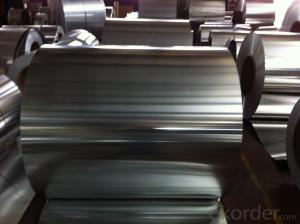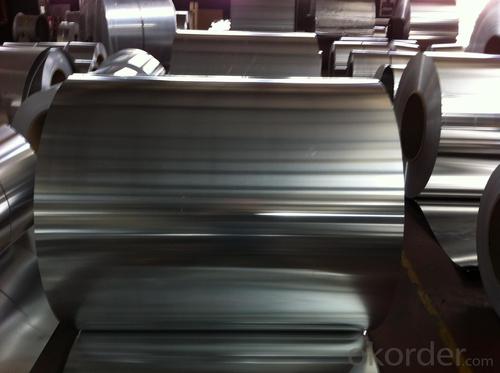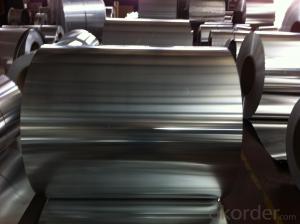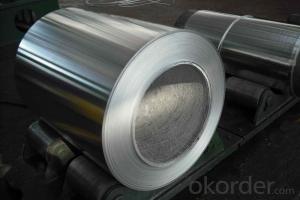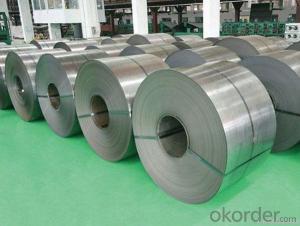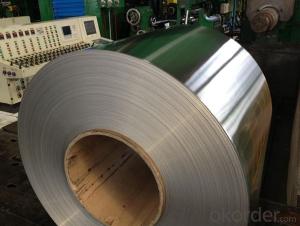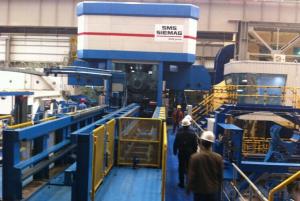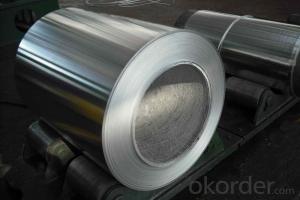Aluminum Sheets for Camper Roof - AA5083 Aluminium Strip in Coil Mill Finished
- Loading Port:
- Shanghai
- Payment Terms:
- TT OR LC
- Min Order Qty:
- 80 m.t.
- Supply Capability:
- 60000 m.t./month
OKorder Service Pledge
OKorder Financial Service
You Might Also Like
Structure of Product Description:
AA5083 Aluminium strip should be rolled down to aluminium coil. Aluminium coils used to for building and indsutry, such as roofing sheets, ceilling,transporting ,decoration,etc. Our rolling line is the world best Hot rolling SMS Siemage(1+4) 2600mm from Germany. AA5083 aluminium strip is one very hard alloy, so it is mainly used in marine. Now we export to South America, Korea and Australia ect.
Main features of the product:
For automobile field, it is much lighter than steel material. It can save energy.
Our goods quality is based on EN,ASTM,JIS Standard
Competitive price and fast sample
Image:
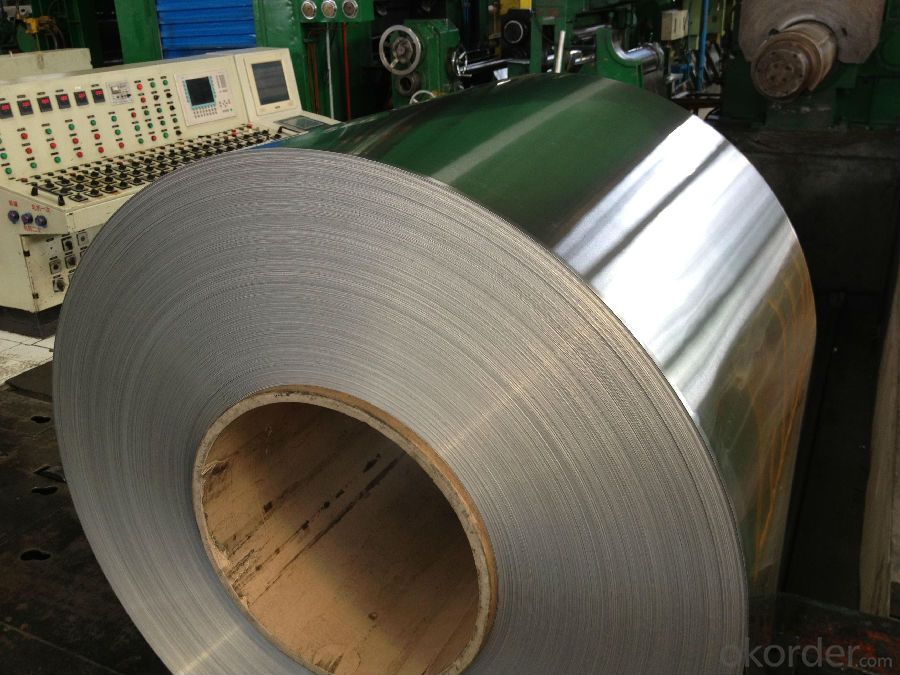
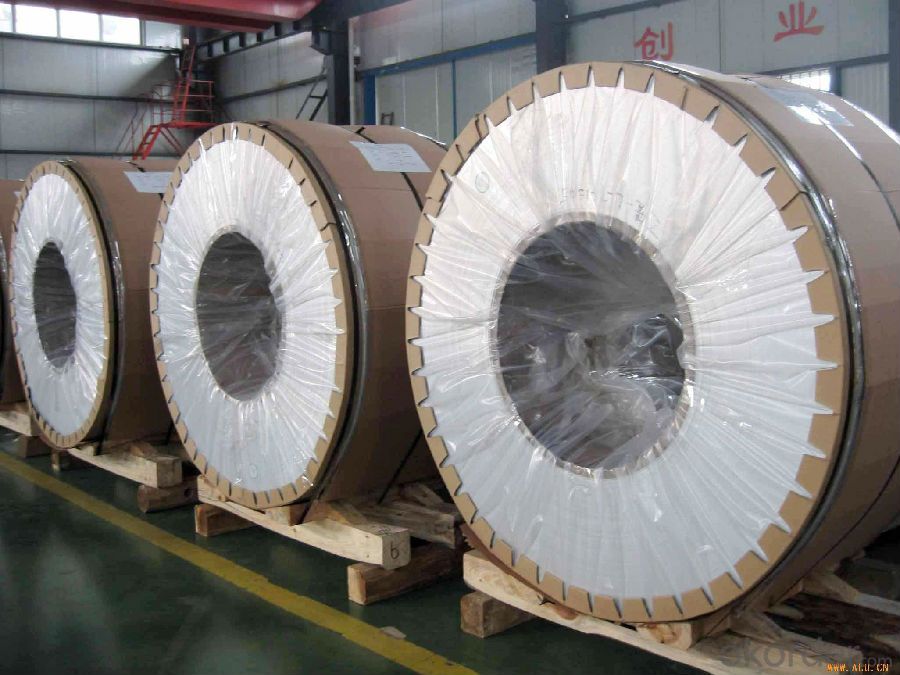
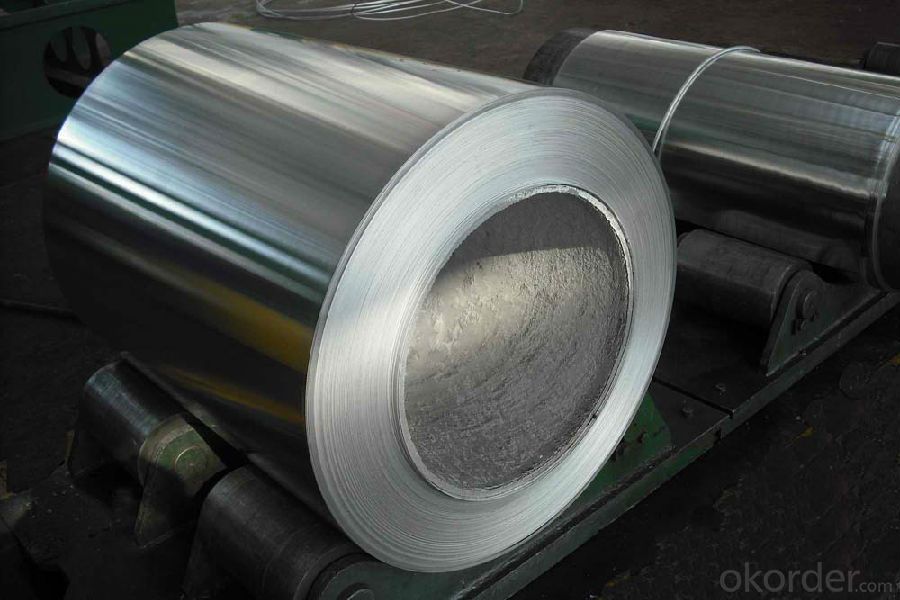
Product specification:
| Thickness | Width | Coil Weight | Delivery Time | Original |
| 3-8mm | 1200mm-2100mm | 5-20 tons | 30 days | China |
| 0.2-3mm | 1200mm-2100mm | below 5 tons | 35 days | China |
FAQ:
1. What is your MOQ for this product
---Usually for one size, our MOQ is 80tons
2. Can you quote on the basis of LME
--Usually we quote on the basis of SMM, not by LME
3. What kind of payment term do you accept?
---Usually we recommend TT and LC at sight
- Q: Are aluminum sheets suitable for beverage cans?
- Yes, aluminum sheets are suitable for beverage cans. Aluminum is lightweight, resistant to corrosion, and can be easily shaped into cans. It also provides a protective barrier against light and air, ensuring the quality and freshness of the beverages inside.
- Q: Are aluminum sheets fire-resistant?
- Yes, aluminum sheets are fire-resistant.
- Q: What is the tensile strength of aluminum sheets?
- The tensile strength of aluminum sheets can vary depending on the specific alloy and temper, but generally ranges from 20,000 to 45,000 pounds per square inch (psi).
- Q: Can aluminum sheet be used for signage?
- Certainly! Aluminum sheet is a viable option for signage purposes. Its durability, versatility, and cost-effectiveness make it a popular choice among sign makers. Being a lightweight material, it is resistant to corrosion, making it suitable for both indoor and outdoor signage. With aluminum sheet, one can easily cut, shape, and form it into various sizes and designs, allowing for customizable signage options. Moreover, it is effortless to print or engrave upon, making it perfect for displaying text, graphics, and logos. Its sleek and professional appearance enhances its appeal for signage purposes. In conclusion, aluminum sheet is an excellent choice for signage due to its durability, versatility, and aesthetic qualities.
- Q: Can aluminum sheets be used for battery enclosures?
- Yes, aluminum sheets can be used for battery enclosures. Aluminum is a widely used material for battery enclosures due to its excellent properties. It is lightweight, corrosion-resistant, and has good conductivity. These characteristics make it suitable for protecting batteries and ensuring their optimal performance. Aluminum's high strength-to-weight ratio also allows for the construction of sturdy yet lightweight enclosures, making it an ideal choice for various battery applications. Additionally, aluminum is easily recyclable, making it an environmentally friendly option. Overall, aluminum sheets are a viable and commonly used material for battery enclosures.
- Q: Our production needs a large number of plating aluminum plate, consult domestic and imported aluminum plate difference?
- Let's fix it for you. We can't do the coil. We do hot plated pure aluminum steel plate
- Q: How to polish aluminum sheet to be bright?
- as for polishing, fine grit sandpaper can't polish it into a mirror,but laser cutting can do it.
- Q: Hello, I dont really know anything about using a drill or cutting through metal or wood. the thing is I have a project in which I have to drill some holes in 0.04in aluminum. but I really dont know if can use regular drill bits used for drilling wood to drill the holes in my aluminum chassis. do I need to buy other drill bits for cutting metal or can I use the same ones Ive seen used for cutting wood? can I even use the same kind of drills, or do I NEED a huge bench drill with stepper bits?thanks
- Aluminum is softer than steel, so you could just use the ordinary bits that you use for wood, with a hand drill. For cleaner holes, you might want to put wood behind the aluminum as a backing. Also, if you squirt a drop of oil onto the drill area, that will help. If you're trying to drill a really large hole, it might be better to drill small ones, and enlarge with a round file.
- Q: Can aluminum sheets be used for storage tanks?
- Indeed, storage tanks can make use of aluminum sheets. Due to its lightweight nature and resistance to corrosion, aluminum proves to be a fitting option for the containment of diverse substances, including water, chemicals, and fuel. Its remarkable durability allows it to endure even the harshest environmental conditions. Moreover, constructing and maintaining aluminum tanks is comparatively straightforward. Nonetheless, it is crucial to take into account the specific necessities of the substance being stored and seek guidance from professionals or engineers to ascertain that aluminum sheets are the suitable selection for the given storage tank.
- Q: Are the aluminum sheets suitable for decorative purposes?
- Indeed, decorative purposes can be served by aluminum sheets. Aluminum, a material known for its versatility, can be effortlessly molded, trimmed, and maneuvered to produce a myriad of decorative components. Its lightweight nature, durability, and resistance to corrosion contribute to its widespread adoption for both indoor and outdoor uses. The availability of aluminum sheets in a vast array of finishes, colors, and patterns further amplifies the scope for limitless design options. Whether it is for embellishing architectural accents, crafting signage, manufacturing furniture, or producing artwork, aluminum sheets possess the potential to elevate the visual allure of any given area.
Send your message to us
Aluminum Sheets for Camper Roof - AA5083 Aluminium Strip in Coil Mill Finished
- Loading Port:
- Shanghai
- Payment Terms:
- TT OR LC
- Min Order Qty:
- 80 m.t.
- Supply Capability:
- 60000 m.t./month
OKorder Service Pledge
OKorder Financial Service
Similar products
Hot products
Hot Searches
Related keywords
